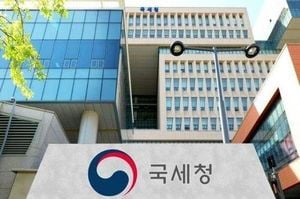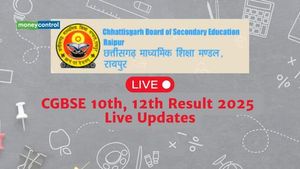On May 5, 2025, the national kick-off of Bevrijdingsdag in Wageningen was marked by unexpected disruptions as a group of protesters interrupted Minister Ruben Brekelmans’ speech. The minister, representing the VVD party and the Defense Ministry, had just begun addressing the importance of freedom when demonstrators climbed over the barriers at the 5 Mei Plein, chanting "Free Palestine." This protest led to the swift removal and arrest of five activists by the police.
The demonstration did not sit well with the audience gathered to honor the veterans who liberated the Netherlands eight decades ago. As the protesters shouted their slogans, members of the audience responded with boos and jeers, urging them to choose another day for their demonstration. One attendee shouted, "Pick another day, come on!" while another added, "Shame on you!" Despite the disruption, Brekelmans concluded his speech by urging unity among the attendees, stating, "Let’s hold each other tight and not let ourselves be divided; that’s what we all need to do."
Following Brekelmans’ address, Prime Minister Dick Schoof lit the 'vrijheidsvuur' (freedom fire), a symbolic act of remembrance, while Polish Prime Minister Donald Tusk delivered a speech that resonated with the audience. Attendees expressed their gratitude and respect for the elderly veterans, who were honored during the event, as military vehicles and brass bands paraded through Wageningen’s streets.
However, the day’s tensions were not over. During the Bevrijdingsfestival later that day, another protest occurred when a smoke bomb was thrown onto the stage as Prime Minister Schoof referred to freedom as "kostbaar" (precious). Security swiftly escorted the prime minister and his Polish counterpart off the stage as the red smoke billowed around them.
Among the festival-goers was activist Petra Rietberg, who, along with her friend Jenneke van Vliet, held a banner reading "Vrijheid voor iedereen" (Freedom for everyone). Rietberg articulated her concerns regarding the notion of freedom in the context of current governmental policies, particularly towards asylum seekers, migrants, and the LGBTQ+ community. She questioned the government’s stance on international human rights issues, particularly regarding the Palestinian situation amid the ongoing Gaza conflict. "Even though Israel violates human rights, this cabinet draws no red line," Rietberg stated, reflecting on the contradictions she perceives in the government’s rhetoric surrounding freedom.
Rietberg’s sentiments were echoed by others in the crowd, some of whom supported her message while others expressed confusion and discomfort with the protest taking place on such a significant day. "We’re here to remember the sacrifices made for our freedom during World War II," one attendee remarked. The diverging opinions highlighted a broader dialogue about the meaning of freedom and the responsibilities that come with it.
In a related development, State Secretary Vincent Karremans announced prior to the celebrations that fourteen Bevrijdingsfestivals across the Netherlands would receive structural funding starting with an allocation of 700,000 euros in 2025. This funding is meant to ensure that the festivals maintain a strong connection to the themes of freedom and remembrance.
Rianne Kuijer, who attended the festival with her family, emphasized the importance of celebrating freedom and educating her children about its value. "I come here to show my kids: this is freedom. Celebrating with music and a beer in hand is a privilege we should appreciate. Eighty years ago, children were able to play outside again; I explain that to my kids. It’s not something we should take for granted, especially since they have Ukrainian friends who have experienced conflict firsthand," she said.
Despite the festive atmosphere, some attendees found the protests disruptive. Artie Blankespoor, who attended with his daughter Madeleen, expressed disappointment that such demonstrations overshadowed the day’s purpose. "I think we already pay enough attention to what’s happening in Israel, so maybe today we could focus on the positive aspects of celebrating freedom," he suggested.
Later in the day, additional protests took place across the country, including the action "Op de grond voor de Grondwet" (On the ground for the Constitution), where demonstrators sat on the streets to make their voices heard. In Utrecht, around 100 people participated in this peaceful protest.
In response to the events of the day, Premier Schoof remarked that it was "a pity" that Bevrijdingsdag was used as a platform for demonstrations about international issues. His comments reflect a broader sentiment among some attendees who believe that the day should be dedicated solely to remembering the past and honoring those who fought for freedom.
Student Roos Hamelink, who resides in Wageningen, acknowledged the complexity of the situation. "The whole point is that we want ‘never again’ in terms of war, but wars are still happening," she noted, adding that she understood the need for peaceful protests. "What freedom means to me? This morning it was about putting on some funky eye makeup," she said with a laugh, highlighting a personal interpretation of freedom amidst the larger discussions of the day.
The juxtaposition of celebration and protest on Bevrijdingsdag illustrates the ongoing struggle to define freedom in contemporary society, as well as the need for dialogue about its implications for all communities, both locally and globally. As the Netherlands commemorates its liberation, the voices of both celebration and dissent remind us that the conversation about freedom is far from over.




